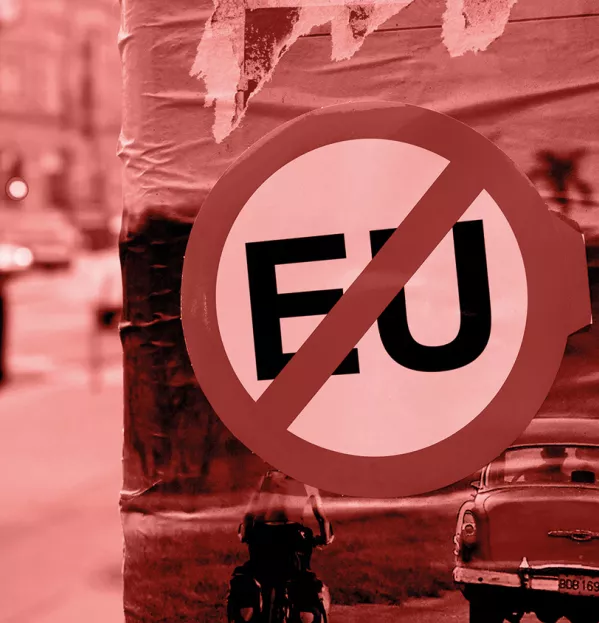Has Brexit put the kibosh on EU recruitment?

The UK’s current immigration system creates barriers for non-EU international teachers wishing to work in British schools.
But within the EU, there are growing signs that teachers are becoming less keen to come to Britain for work - a development that could further exacerbate the recruitment crisis.
According to data from the Department for Education last November, in 2016-17 there was a drop in the number of qualified teacher status awards made to teachers from Europe.
Currently, professional recognition and the award of QTS with no requirement for further training is available for two groups of overseas-trained teachers: those who qualified in the European Economic Area, or Switzerland, and those who qualified in Australia, Canada, New Zealand and the United States.
The government statistics showed that, among the EEA countries, there were 4,690 QTS awards in 2016-17 - a 2 per cent drop from 2015-16.

The number of QTS awards to teachers from Spain - which accounts for the largest share of EEA awards - fell by 1 per cent. But for Greek teachers the number fell by 19 per cent, and for those from Poland it fell by 12 per cent.
The fall in QTS awards is not the only indication that European teachers are less eager to come to Britain; fewer people from within the EU are also applying to teacher training courses here.
According to figures from Ucas, the number of EU teacher training applicants has fallen year-on-year since 2014. In 2017, the number was down by 38 per cent on where it was in 2014.
Some people suspect that this declining appetite to teach in the UK may be related to the run-up and aftermath of the EU referendum, with European teachers feeling uncertain about their future employment status in Britain and perhaps less welcome, too.
Earlier this month, the DfE published research looking at the experiences of schools hiring international teachers. The research found that the impact of the Brexit vote had been “unsettling”.
“Schools reported EU teachers leaving or pulling out of appointments,” the report said. “The unknown medium and longer-term implications of Brexit were described as causing uncertainty for schools and staff.”
‘Fewer applications’
Arwel Jones, headteacher of Brentside High School, in West London, says: “People who are EU nationals are concerned. We do get modern foreign language teachers from France and Spain, in particular - a slightly lesser extent from Germany - they will be worried about their work status post-Brexit.”
Jones has seen a decline in job applications from European teachers. “I get fewer applications from EU nationals for a modern language post,” he says. “That seems to have reduced significantly.”
Victoria Eadie, chief executive of Tudor Park Education Trust, also in West London, says that her teacher supply has been hit indirectly by declining interest from European jobseekers. “We used to often bring them in from a teaching assistant route and then train them up to be teachers,” she says. “We’re not getting them through on the TA route because they’re not coming now.”
School leaders do not see international teachers - whether they are from the EU or elsewhere - as their first port of call for recruitment. But they have become increasingly important because of the acute shortage of British teachers. The DfE’s research into recruiting from overseas found: “Schools consistently couched their primary reason for recruiting internationally in terms of need, due to issues with national supply, as opposed to a desire to do so.
“Terms and phrases such as ‘desperation’, ‘having exhausted all other possibilities’, ‘last resort’ and ‘I would avoid if I could’ were frequently used.”
Jones says he wants “a much greater supply of UK teachers coming through”, but adds that “the teacher supply model is broken”.
Until that situation is fixed, he thinks Britain needs to provide a more welcoming environment for international teachers from the EU and beyond. “The bottom line is they are an important part of being able to fulfil our obligations to children in our schools,” he says.
You need a Tes subscription to read this article
Subscribe now to read this article and get other subscriber-only content:
- Unlimited access to all Tes magazine content
- Exclusive subscriber-only stories
- Award-winning email newsletters
Already a subscriber? Log in
You need a subscription to read this article
Subscribe now to read this article and get other subscriber-only content, including:
- Unlimited access to all Tes magazine content
- Exclusive subscriber-only stories
- Award-winning email newsletters